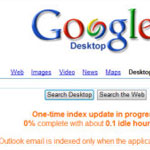Excessive amount of people hating chinese eh? Well Google does!
Even when seeing this, people still question wether Google is the biggest search engine out there. There’s a ton of weird information out there about every subject. The suggestions Google makes when you’re searching for something can get weird results, as you can see in the movies below.
Bad news for Google
At the time, when Google Desktop Search is already competing with big players like Yahoo, MSN, AskJeeves, Gartner has just made the going even tougher.
Don’t use Google desktop search in your business, warns Gartner. Google Desktop Search has great potential for business use. Its security problems and lack of corporate-ready functions, however, make it unsuitable for widespread use right now.

Gartner has warned that companies shouldn’t use the new Google Desktop Search tool because of security concerns and a lack of features. In a three-page research document, the authors – Whit Andrews, Maurene Grey and David Smith – say the tool that was released in beta in October is “not the proper search tool for businesses right now”.
Instead they reiterate concerns put forward by the CEO of Google rival Copernic, David Burns, two months ago: “Google’s ‘Consent to Collect Nonpersonal Information’ states that GDS collects non-personal data; however, the policy is a one-sided contract in that the user must trust that Google will make the right decisions as to what it will collect.”
However, it also doesn’t offer enough features and for it to recommend Google it would want to see “greater customisation of interface, flexibility for visualisation of results, groupwide administration and index load-balancing”.
This is certainly not good news for Google at a time when its biggest competitor MSN desktop search is getting better reviews. Preston Gralla of Oreilly writes:
Google may be the ultimate Web searcher, but when it comes to finding things on your computer, the just-released beta of MSN Desktop Search beats it hands-down.
That’s because Microsoft’s search tool has been built specifically to search through emails and documents, and so it lets you fine-tune your search in ways that Google doesn’t. So if you’re looking for a specific piece of email, for example, you can search by folder, by sender, by date, by size of file attachments, and more – and you can combine them all for exceedingly fine-tuned searches.
Additionally, MSN Desktop Search has an interface that lets you easily sort and resort your results, and lets you right-click on any result, and then take actions on the file from a pop-up menu – the same pop-up menu that appears when you right-click in Windows Explorer.
There are a lot of other nifty extras in it as well. It can sit as a box in your Taskbar for example, and when you want to do a search, type your search into the box, and results pop up, menu-style. Click on any result to get straight to the file or email.
Google’s search tool, on the other hand, uses the Web search paradigm. You can fine-tune it in ways you would when searching the Web, but not in ways you’d like to when looking for files or email on your hard disk. The interface is bare-bones Google, which is fine for the Web, but not suited for when you’re looking for files, and then working with them on your PC.
Don’t expect either of these search tools to change drastically. Google has applied the Web approach to searching and applied it to your computer. Microsoft instead applied what it knows about Windows, Outlook, and documents. And the winner, without a doubt, is Microsoft.
Hackers poison PCs that Google “March Madness”
Cybercriminals have begun poisoning Google search results to misdirect sports fans looking to participate in March Madness festivities, security firms say. Websense has found poisoned “search engine optimization” results mixed in with legit results for Google searches on “March Madness schedule,” “March Madness brackets,” and “2009 NCAA bracket predictions.”
This story explains how poisoned SEO results can re-direct your browser to a website serving up all sorts of malicious programs. SEO attacks have become very popular with cyber gangs who specialize in redirecting you to online pitches to buy worthless antispyware subsctiptions for $50. Most often the bad guys will also turn your PC into an obedient bot, and steal all of your sensitive data.
“Cybercriminals specifically take advantage of events like March Madness, because they know consumers are actively looking for brackets to download, the best teams to fill in and pools to participate in,” said Carol Carpenter, vice president of consumer marketing for Trend Micro. “These crooks are smart and know what people are searching for throughout the year. We advise all consumers that they should always keep their anti-virus software protection up-to-date to prevent all infections.”
Good advice. But keeping your antivirus subcription current won’t fully protect you. The bad guys have gotten very good at staying one-step ahead of the latest antivirus updates.
To truly stay safe while surfing the Internet you need to do your homework and be ready to give up convenience. There are numerous consumer tools designed to assess the goodness of the Web page you are about to click to, and tell you whether it’s safe. AVG, ScanSafe, McAfee and Enigma have consumer web scanning tools and services worth checking out.
And here’s a tip: WinPatrol offers very powerful protection. It’s a terrific free tool, popular with techies since it was created 10 years ago by Bill Pytlovany, one of the original designers of AOL and a longtime open-source practitioner. The premier version, called WinPatrol Plus, costs just $30 for a lifetime subscription, which includes all updates, and is designed for the average consumer. WinPatrol takes a snapshot of your Windows run registry, and from then on blocks and alerts you to any new executable program, such as a malicious backdoor, that tries to install itself on your hard drive.
By Byron Acohido
Hi all!
The first post in history of this weblog. We’ll update you as soon as possible with all the information regarding Google and the truth about it… sounds a little spooky? Well, we’ll see. Please comment and visit us again!
We’ll found out where this ends!
John ‘Whuup’ Nijenroode
Henry de Waag
Igor Tinbergen
William ‘Astromaniac’ van Urken




1 comment